 MyDogBreeds
MyDogBreeds Shetland Sheepdog is originated from United Kingdom but Russo-European Laika is originated from Russia. Shetland Sheepdog may grow 19 cm / 7 inches shorter than Russo-European Laika. Shetland Sheepdog may weigh 11 kg / 24 pounds lesser than Russo-European Laika. Both Shetland Sheepdog and Russo-European Laika has almost same life span. Both Shetland Sheepdog and Russo-European Laika has same litter size. Shetland Sheepdog requires Moderate maintenance. But Russo-European Laika requires Low maintenance
Shetland Sheepdog is originated from United Kingdom but Russo-European Laika is originated from Russia. Shetland Sheepdog may grow 19 cm / 7 inches shorter than Russo-European Laika. Shetland Sheepdog may weigh 11 kg / 24 pounds lesser than Russo-European Laika. Both Shetland Sheepdog and Russo-European Laika has almost same life span. Both Shetland Sheepdog and Russo-European Laika has same litter size. Shetland Sheepdog requires Moderate maintenance. But Russo-European Laika requires Low maintenance
 The Shetland Sheepdog was crossed with working collies and brought to the islands. They were bred on the Shetland Islands, United Kingdom.
The Shetland Sheepdog was crossed with working collies and brought to the islands. They were bred on the Shetland Islands, United Kingdom.
These little dogs have always been particularly valuable to farmers who used them to herd their sheep.
During the early 20th century other crosses occurred an in 1909 and the little dog received recognition by the English Kennel Club. The first Sheltie to be registered by the American Kennel Club was in 1911.
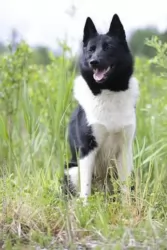 The Russo-European Laika is a hunting dog that comes from Russia.
The Russo-European Laika is a hunting dog that comes from Russia.
It is a dog that has been developed from Spitz type dogs. A breeding program was started for the dog in 1944.
The Russo-European Laika dog is recognized by the Federation Cynologique Internationale in the Spitz and Primitive type group.
 The small Shetland Sheepdog stands at between 33 to 41cm and weighs roughly between 6 and 12kg for both males and females. The long double coat of this dog sheds consistently, he will need to be brushed regularly.
The small Shetland Sheepdog stands at between 33 to 41cm and weighs roughly between 6 and 12kg for both males and females. The long double coat of this dog sheds consistently, he will need to be brushed regularly.
The coat is golden, black or a steel grey color with white. The ears are erect and the tail long and feathery and the expression on this dogs face is sensitive, alert and gentle.
Shelties make wonderful pets for their human families and are great with children too. They’re protective, making good watchdogs. They are somewhat wary around strangers.
Smart and alert, you can train this little dog plenty of tricks because he is quick to learn. They’re such agile little dogs and are great athletes. It’s always a good idea to keep such a smart little dog busy so he doesn’t become bored.
He is able to adjust to life in the city or the countryside, so long as he is kept busy, otherwise he takes to a piercing kind of bark.
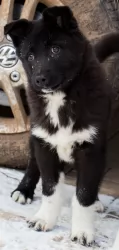 The Russo-European Laika is a medium sized dog Spitz dog that stands at between 54 to 60cm in height and weighs in the region of 20 – 23kg.
The Russo-European Laika is a medium sized dog Spitz dog that stands at between 54 to 60cm in height and weighs in the region of 20 – 23kg.
The dog has quite a strong resemblance to the Karelia Bear Dog. They are sometimes mistaken for each other.
The Russo-European Laika has the typical triangular shaped head with small dark eyes, a black nose and erect, pointed ears. These are deep chested dogs.
As with other Spitz breeds, this dog has a thick fur with a densely furred tail which is curved over the back. The double coat is fairly long and usually a dark grey color or black with some white markings. Sometimes the dog has a white coat.
This is a lively, energetic dog breed that loves to spend time outdoors. It has always been used to alert hunters to prey, using its bark to alert the hunter.Training and socialization will be necessary for the dog if you don’t want it to be barking in the house too.
He makes an excellent guard dog, protecting his human family. It is very tolerant of children too, getting on well with them as well as other pets.
The dog is known for being totally devoted to its family, being an affectionate and loyal breed that doubles as a family pet and guard dog.
 You’re certainly not going to have one dull moment with the Shetland sheepdog – its such a lively, intelligent, entertaining, playful and also eager to please - that's your Sheltie.
You’re certainly not going to have one dull moment with the Shetland sheepdog – its such a lively, intelligent, entertaining, playful and also eager to please - that's your Sheltie.
They also have a gentle, quiet side. They love the company of their human family and are able to adapt to life in the city or countryside, so long as he gets lots of attention and exercise.
They’re highly strung dogs, and an excitable child can get them barking in a high pitched way which wont be good if you live close to your neighbors.
Shelties are essentially peaceful dogs who prefer a home where its quiet and orderly. If you give this dog what it needs, just like you would for any family member of yours, you’ll be blessed with an awesome pet and companion.
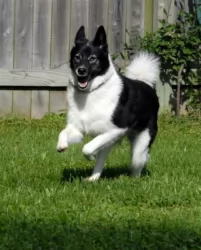 This is an intelligent dog breed, loving the time he spends with his human family but reluctant to be patted by strangers.
This is an intelligent dog breed, loving the time he spends with his human family but reluctant to be patted by strangers.
They also get along with pets that they have grown up with. They get on well with kids and make great watchdogs too. Small wonder they make such sought after pets and companions.
 Every dog, no matter how healthy, can succumb to any one of the many dog illnesses there are.Some of the dog illnesses to look out for include cancer, bloat, ear infections, dental problems, hypothyroidism, skin allergies and obesity among others.
Every dog, no matter how healthy, can succumb to any one of the many dog illnesses there are.Some of the dog illnesses to look out for include cancer, bloat, ear infections, dental problems, hypothyroidism, skin allergies and obesity among others.
This illness occurs when the dog’s body doesn’t maintain sufficient levels of thyroid hormones. Your pet will be sensitive to the cold, the thick hair will be thinning and there will be weight gain. It will be wise to have your dog checked out by your vet as this is an ailment which can be managed with medication.
This is an inherited condition that can lead to blindness in some dogs. It can occur in both eyes. It can be diagnosed by your vet but regrettably there is no treatment. Not spaying or neutering your dog will mean that if the have puppies the gene can be carried down to the puppies.
This is an inherited disorder that can cause skin lesions but also affect the muscles. Skin lesions can appear on the head and the front legs and there can be hair loss.
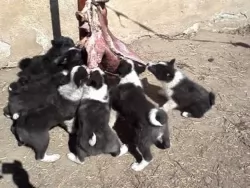 These Spitz type dogs are always known to enjoy good health, and owners don’t have to worry too much about their health as only a small number of health issues are reported with this healthy dog breed.
These Spitz type dogs are always known to enjoy good health, and owners don’t have to worry too much about their health as only a small number of health issues are reported with this healthy dog breed.
This is a congenital defect in the abdominal muscles and can result in fat or tissues being evident under the skin. A bulge is often seen in the area of the abdomen. Larger hernias will require surgery.
 These little dogs have always been farm dogs and they will need a lot of exercise. Even so, with their small size, they can adapt to life in the city or the countryside, but will always need exercise.They love going for walks and playing games with the kids.
These little dogs have always been farm dogs and they will need a lot of exercise. Even so, with their small size, they can adapt to life in the city or the countryside, but will always need exercise.They love going for walks and playing games with the kids.
Your Sheltie will need brushing every day because the hair can so easily pick up leaves, twigs and burrs. In the warmer months some people prefer to trim the coat themselves or take the dog along to a professional groomer.
It is best to feed adult dogs two meals a day instead of one. One can make your dog want to gobble up his food too quickly and this can result in a life threatening condition known as bloat.
How much any adult dog eats will depend on his size, his age and his activity levels.The quality of dog food you buy also makes a huge difference – the better quality the food, the more satisfied your Sheltie will be.
Some of the best commercially manufactured dog foods are convenient and they can be good if you go with the best brands that have high levels of vitamins and minerals in them. Dry kibble can be made more enticing when you add some homemade food into it.
Boiled chicken, sweet potatoes, brown rice or pasta, carrots and spinach will do him the world of good. Chop it up and add small portions to the kibble about twice a week. His wagging tail and prancing antics will be all the thanks you need.
Some raw meat added in occasionally will also contribute to your pet’s heath. Make sure he is never without a constant supply of fresh, cool water.
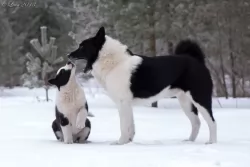 This is an energetic dog and will require a good amount of excerise. This dog isn’t suited to living in the city as they are highly active. Apart from wanting large grounds to run around in, he will need walks as well as ball- and rope games to keep him busy.
This is an energetic dog and will require a good amount of excerise. This dog isn’t suited to living in the city as they are highly active. Apart from wanting large grounds to run around in, he will need walks as well as ball- and rope games to keep him busy.
He is intelligent and needs some form of mental stimulation. There are good quality toys which one can buy for these dogs than can make them think.
Many things can change a dog’s longevity, and diet is one. A good nutritious diet with vitamins and minerals will give your dog less of a chance to get sick.
If you go for the best quality commercially manufactured dog foods, you’ll find that they are both convenient and well balanced.
To provide your dog with just a bit of variety in his diet, some home-made food added into the dry kibble from time to time will delight your pet.
No need to make preparing the food a huge issue either. Boil brown rice and chicken in a pot and add in sweet potatoes, carrots and spinach. Chop all this up and add small portions of it into the dry kibble.
Try to include a bit of raw meat occasionally and never let your dog be without a constant source of fresh, cool water